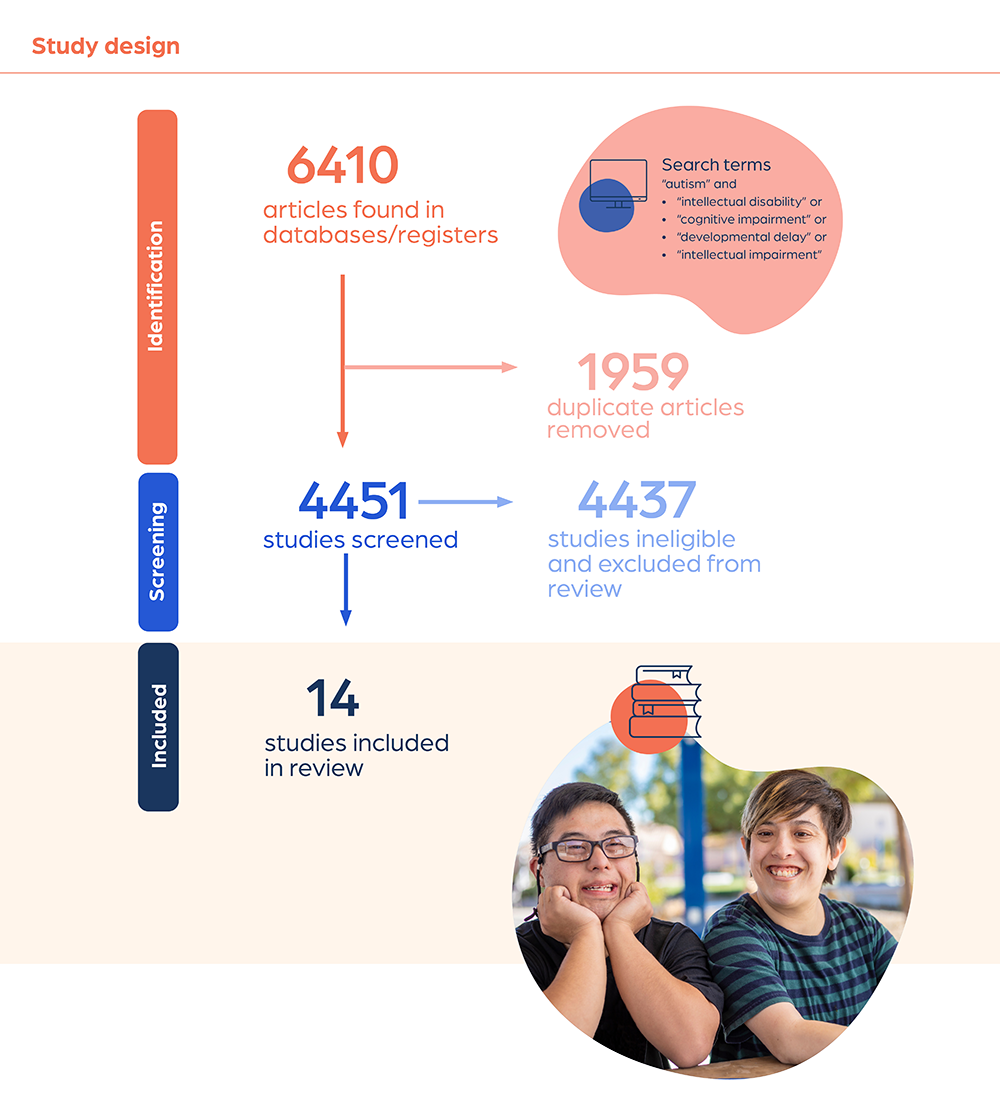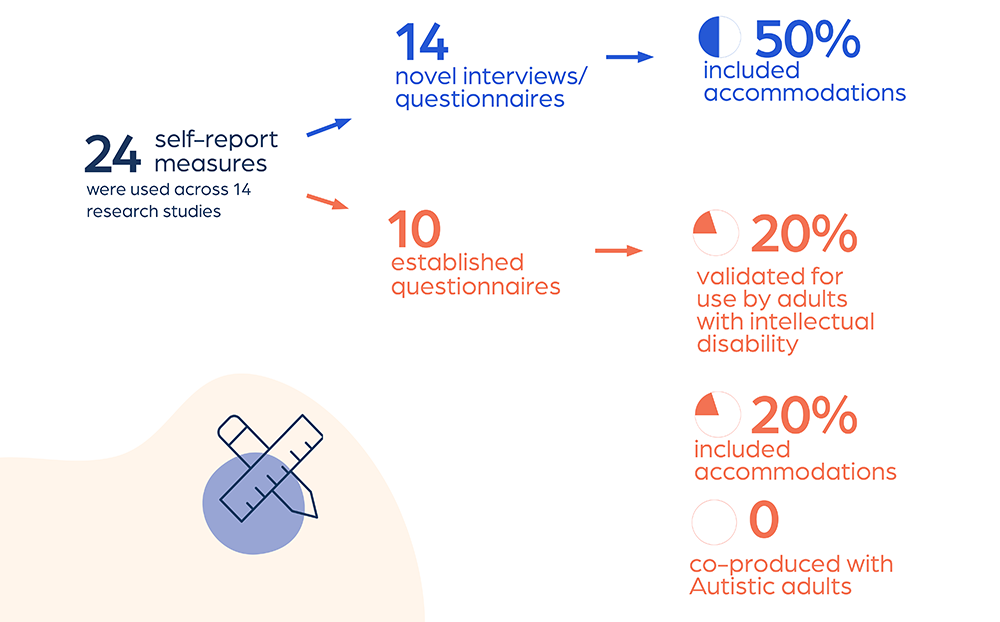Why
Autistic people are often underrepresented in autism research, which usually relies on reports from parents, teachers and clinicians. Self-report methods, like interviews and surveys, are often inaccessible to individuals with intellectual disability, who make up around 31–50% of the Autistic population. While involving Autistic individuals and their families in research has grown and shown benefits, it’s unclear if this includes studies focusing on those with intellectual disability. A systematic review is needed to understand the research done so far, improve inclusivity, and guide future studies with better, more inclusive methods.
How much research uses first-hand information from Autistic people with intellectual disability? What measures have been used?
The research

What we learnt

Full research report
Publication
Gibbs, V., Cai, R.Y., Love, A.M., Edwards, C., & Al Ansari, M. (2024). Unheard Voices: A Systematic Literature Review of Studies Using Self-Report Methods to Gather the Perspectives of Autistic Adults with Intellectual Disability. Autism in Adulthood.
Find out more
Making a difference
Our review highlights major gaps in autism research, especially the lack of focus on Autistic adults with intellectual disability. Despite growing efforts to include Autistic voices, those with intellectual disabilities remain largely excluded. Future research should develop accessible self-report tools and involve these individuals to better reflect the full diversity of Autistic experiences and create meaningful outcomes for this underserved group.
Research team
Dr Vicki Gibbs, Aspect Research Centre for Autism Practice (ARCAP)
Dr Abbey Love, ARCAP
Dr Ru Ying Cai, ARCAP
Dr Chris Edwards, ARCAP
Dr Mustafa Al Ansari (ARCAP/La Trobe University)
Started
2024
Ends
2024
Funding
Aspect

